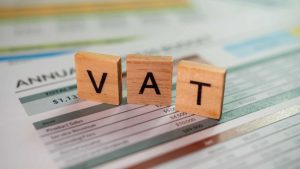When Do I Need to Register My Business With HMRC? | A Complete Guide!
Are you wondering when you need to register your business with HMRC? Whether you’re a sole trader, limited company, or partnership, registering at the right time is crucial for tax compliance and avoiding penalties.
Missing deadlines can result in fines, interest on unpaid taxes, and even HMRC investigations. But when exactly do you need to register?
The rules vary depending on your business type, annual turnover, and whether you employ staff. Sole traders earning over £1,000 must register for Self-Assessment, while limited companies must register for Corporation Tax within three months of trading.
VAT and PAYE registration also have specific thresholds. This guide explains everything you need to know about HMRC registration deadlines, processes, and penalties to ensure your business remains fully compliant in 2025.
What Types of Businesses Need to Register With HMRC?

Understanding whether you need to register your business with HMRC is crucial for compliance with UK tax laws. The registration process varies based on the type of business structure you operate under. Here’s an overview of the key business types that require registration:
- Sole Traders: If you earn more than £1,000 from self-employment in a tax year, you must register for Self-Assessment with HMRC. Even if your income is below this threshold, voluntary registration can help establish a financial record.
- Partnerships: A business partnership must be registered with HMRC by the ‘nominated partner’, who handles tax returns. Each partner must also submit a personal Self-Assessment tax return.
- Limited Companies: If you set up a private limited company (Ltd), you must register with both Companies House and HMRC for Corporation Tax. Directors may also need to register for Self-Assessment.
- Freelancers & Contractors: Independent professionals working in sectors like IT, marketing, or consulting typically register as sole traders or set up a limited company for tax efficiency.
Each structure has different tax obligations, making early registration essential to avoid penalties and ensure compliance with UK business regulations.
When Do You Need to Register as a Sole Trader?
If you are self-employed, the point at which you must register with HMRC depends on your earnings. The £1,000 threshold remains a key factor if your self-employment income exceeds £1,000 in a tax year, you are legally required to register for Self-Assessment and Class 2 National Insurance Contributions (NICs).
This threshold applies whether you work full-time as a sole trader or run a side business alongside employment.
Key Registration Deadlines in 2025
- You must register by 5th October following the end of the tax year in which you started trading.
- For example, if you started your business in June 2024, you must register by 5th October 2025.
- Failure to meet this deadline could result in fines and penalties from HMRC.
How to Register?
- Registration is done through the HMRC online portal by creating a Government Gateway account.
- You will receive a Unique Taxpayer Reference (UTR) number, which is essential for filing tax returns.
- Once registered, you must submit a Self-Assessment tax return each year by 31st January.
Even if your earnings are below £1,000, voluntary registration can be beneficial, as it allows you to claim tax-deductible business expenses and build a financial history for future borrowing or investment opportunities.
When Do You Need to Register a Limited Company?

Unlike sole traders, limited companies must register with HMRC immediately after incorporation. The registration process is tied to Companies House, meaning your business is officially recognised as a separate legal entity once it is incorporated.
Key Registration Steps
- When registering a limited company, you will receive a Company Registration Number (CRN) from Companies House.
- Within three months of starting business activities, you must register for Corporation Tax with HMRC.
- If you plan to pay employees (including yourself as a director), you may need to set up PAYE (Pay As You Earn).
Corporation Tax Registration Deadline in 2025
- You must register for Corporation Tax within 3 months of starting trading activities.
- The first Corporation Tax return is due 12 months after the end of your company’s accounting period.
- Payment of Corporation Tax must be made within 9 months and 1 day after the accounting period ends.
Unlike sole traders, a limited company provides limited liability protection, meaning your personal assets are separate from your business liabilities.
However, it also involves more administrative responsibilities, including annual financial reporting and compliance with Companies House regulations.
If you fail to register for Corporation Tax on time, HMRC may impose fines and interest on unpaid tax amounts.
Do You Need to Register a Business Partnership?
A business partnership is a legal structure where two or more individuals share business responsibilities and profits. Unlike sole traders, partnerships require both individual registration and joint registration.
Key Registration Requirements
- The partnership itself must be registered with HMRC.
- One partner must act as the ‘nominated partner’, responsible for submitting the partnership tax return.
- Each partner must register individually for Self-Assessment and file their personal tax return.
Registration Deadlines for 2025
- You must register your partnership by 5th October in the second tax year after you begin trading.
- Example: If you start trading in July 2024, you must register by 5th October 2025.
Tax Responsibilities of a Partnership
- The partnership itself does not pay tax profits are divided among partners, who pay tax on their share.
- Each partner must report their earnings via Self-Assessment and pay Income Tax and National Insurance accordingly.
- If the partnership’s turnover exceeds £90,000 in 2025, VAT registration is required.
Failing to register a partnership on time can lead to HMRC penalties and unnecessary tax complications. Choosing a partnership agreement can help define each partner’s responsibilities and prevent legal disputes.
What Happens If You Register Late?

Failing to register your business with HMRC on time can lead to financial penalties and legal consequences. HMRC actively monitors business activities, and late registration may result in additional tax liabilities, interest charges, and even compliance investigations.
Penalties for Late Registration in 2025
- Self-Assessment (Sole Traders & Partnerships): A £100 fine if you miss the 5th October registration deadline, with additional penalties increasing over time.
- Corporation Tax (Limited Companies): If you fail to register within three months of starting business activities, HMRC may impose a fine starting from £100, increasing to £500 depending on the delay.
- VAT Registration: If you surpass the £90,000 VAT threshold but fail to register within 30 days, HMRC can issue penalties based on unpaid VAT and apply interest charges.
Other Consequences of Late Registration
- Interest on Unpaid Taxes: Any taxes owed due to late registration will accumulate interest, making the financial burden heavier.
- Compliance Investigations: HMRC may conduct audits or request additional financial records to check if you have intentionally avoided tax obligations.
- Restricted Business Growth: Late registration can impact credit ratings, funding opportunities, and business reputation.
If you realise you’ve missed a deadline, it is advisable to register as soon as possible and contact HMRC to avoid further penalties.
In some cases, HMRC may reduce penalties if you can provide a reasonable excuse for the delay, such as a serious illness or system failure preventing registration.
How Do You Register Your Business With HMRC?
Registering your business with HMRC is a straightforward process, but it varies depending on your business structure. Below is a step-by-step guide for each type of business.
1. Registering as a Sole Trader
- Visit HMRC’s online portal and create a Government Gateway account.
- Provide personal details, including National Insurance (NI) number and business details.
- HMRC will issue a Unique Taxpayer Reference (UTR) within 10 working days.
- You will be automatically enrolled for Self-Assessment and must submit a tax return every year.
2. Registering a Limited Company
- Apply through Companies House (online registration costs £12 and is completed within 24 hours).
- Provide details including company name, registered office address, director details, and shareholder information.
- Companies House will issue a Company Registration Number (CRN) upon successful incorporation.
- Within three months, register for Corporation Tax through the HMRC website.
3. Registering a Business Partnership
- The nominated partner registers the partnership with HMRC for Self-Assessment.
- Each partner must also register individually to submit a personal tax return.
- HMRC will issue a UTR for the partnership and individual UTRs for each partner.
4. Registering for VAT and PAYE (If Required):
- VAT registration is required if your taxable turnover exceeds £90,000 in 2025.
- PAYE registration is mandatory before you pay employees, including directors.
After registration, HMRC will send confirmation letters with your UTR, VAT number, or PAYE reference number depending on your business type. Keeping these details secure is essential for tax reporting and compliance.
Do You Need to Register for VAT and PAYE?

Whether you need to register for VAT (Value Added Tax) or PAYE (Pay As You Earn) depends on your business size and structure. These registrations are separate from your standard business registration but may be required for tax compliance.
VAT Registration in 2025
VAT registration is mandatory if:
- Your annual taxable turnover exceeds £90,000 (updated 2025 threshold).
- You expect your turnover to exceed £90,000 within the next 30 days.
- You sell goods or services to other VAT-registered businesses in the UK or abroad.
Voluntary VAT Registration
Even if your turnover is below £90,000, registering voluntarily can offer benefits such as reclaiming VAT on business expenses. However, this also means you must charge VAT on sales and submit VAT returns regularly.
VAT Registration Process
- Apply through HMRC’s VAT registration service.
- Receive a VAT registration number within 30 working days.
- Submit VAT returns either quarterly or annually, depending on your preference.
PAYE Registration for Employers
If you plan to hire employees or pay yourself a salary as a director, you need to register for PAYE before the first payroll. PAYE ensures Income Tax and National Insurance contributions are deducted from employee wages.
PAYE Registration Requirements
- PAYE registration is needed if you pay an employee more than £123 per week.
- You must register at least one week before the first payday.
- HMRC provides a PAYE reference number, which is used to report payroll details.
Failing to register for VAT or PAYE when required can lead to penalties and compliance checks from HMRC. If unsure whether your business qualifies, seeking professional advice or using HMRC’s VAT and PAYE eligibility tools can provide clarity.
How to Avoid Common Mistakes When Registering With HMRC?
Many new business owners make avoidable mistakes when registering with HMRC, leading to delays, fines, or unnecessary tax liabilities. Understanding these common pitfalls can help ensure a smooth registration process.
- Missing the Registration Deadline: Sole traders must register for Self-Assessment by 5th October after the end of their first trading year. Limited companies must register for Corporation Tax within three months of starting business activities. VAT registration is required within 30 days if turnover exceeds £90,000.
- Incorrect Business Structure Selection: Choosing between a sole trader, limited company, or partnership impacts tax responsibilities and legal liabilities. Switching later is possible but can be time-consuming and costly.
- Not Keeping Accurate Financial Records: HMRC requires all businesses to maintain detailed records of income, expenses, and tax payments. Poor bookkeeping can lead to compliance checks and penalties.
- Forgetting PAYE Registration for Employees: If you plan to hire staff or pay yourself a director’s salary, you must register for PAYE before the first payroll.
- Failing to Update HMRC on Business Changes: Any changes in business structure, address, or VAT status must be reported to HMRC immediately.
Avoiding these common mistakes ensures a hassle-free registration process and prevents unnecessary financial and legal risks.
Conclusion
Registering your business with HMRC on time is essential to stay compliant with UK tax laws and avoid penalties.
Whether you’re a sole trader, running a partnership, or operating a limited company, understanding the deadlines and requirements ensures smooth financial management.
If you’re self-employed, you must register for Self-Assessment by 5th October after the tax year you start trading.
Limited companies must register for Corporation Tax within three months, and VAT registration is required for turnovers exceeding £90,000. Employers must also register for PAYE before the first payroll.
Delaying registration can result in fines, interest charges, and compliance checks. If you’re unsure about your obligations, using HMRC’s online tools or consulting a tax professional can help. Take action early to avoid unnecessary complications and ensure your business operates legally.
FAQs
What if I earn less than £1,000 from self-employment?
If your self-employment income is under £1,000 per tax year, you are not legally required to register. However, voluntary registration allows you to claim business expenses.
Can I register my business before making any income?
Yes, you can register early, especially if you plan to start trading soon. Registering in advance ensures you meet tax deadlines and avoid late registration penalties.
Do I need a business bank account to register with HMRC?
Sole traders don’t need a separate business account, but limited companies must have one. Having a business account simplifies tax filing and financial management.
Can I change my business structure after registering?
Yes, you can switch from a sole trader to a limited company or vice versa. However, you’ll need to inform HMRC and follow the correct re-registration process.
How long does it take to register a business with HMRC?
Sole trader registration usually takes 10 working days, while limited company registration through Companies House can be completed within 24 hours online.
What if I’m running multiple businesses?
You can operate multiple businesses under one Self-Assessment, but each limited company must be registered separately with Companies House and HMRC.
Do I need to register if I’m only selling online?
Yes, if you earn over £1,000 annually from selling online, you must register as a sole trader or limited company, depending on your business model.







